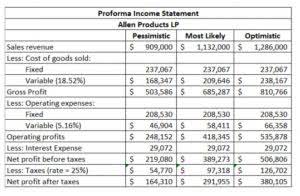
Bookkeepers often get paid hourly wages rather than annual salaries. The average wage for someone new to the business is $21.70 per hour. This is the equivalent of around $45,000 per year, assuming a 40-hour workweek.
Financial Auditor
- All legal and regulatory requirements must be met by bookkeeper records.
- Bookkeepers offer a literal look at where you stand financially at the moment.
- The updated financial data provided by book balancing provides valuable financial information that enables informed decision-making.
- There are dozens and dozens of bookkeeping options available and the choices may seem overwhelming.
- It is important to possess sharp logic skills and big-picture problem-solving abilities, as well.
- Accountants typically have at least a bachelor’s degree in accounting, and many go on to become certified public accountants (CPAs) or certified management accountants (CMAs).
The following analysis compares the education requirements, skills required, typical starting salaries, and job outlooks for accounting and bookkeepers. Each one of these is designed to track specific types of business transactions. For example, there’s cash basis accounting and accrual basis accounting. You need to decide which accounting method you will use for your company. Either way, it’s critical to have an accurate balance sheet and income statements.

Abbreviations used in bookkeeping
In other words, any time cash enters or exits your accounts, they are recognized in the books. This means that purchases or sales made on credit will not go into your books until the cash exchanges. This guide will walk you through the different methods of bookkeeping, how entries are recorded, and the major financial statements involved. They often use specialized accounting software such as QuickBooks, Excel, Xero, Sage, or FreshBooks. These software programs streamline the process and provide tools for generating reports and managing financial data. The updated financial data provided by book balancing provides valuable financial information that enables informed decision-making.
Financial statements
Intuit accepts no responsibility for the accuracy, legality, or content on these sites. Let us walk you through everything you need to know about the basics of bookkeeping. You don’t need any special training to be a bookkeeper—you don’t even need a bachelor’s degree. For the past 52 years, Harold Averkamp (CPA, MBA) hasworked as an accounting supervisor, manager, consultant, university instructor, and innovator in teaching accounting online.

The process of recording and preserving financial transactions for a company or a person. Whether you’re trying to determine the best accounting system for your business, learn how to read a cash flow statement, or create a chart of accounts, QuickBooks can guide you down the right path. Not only can this help you set goals, but it can also help you identify problems in your business.
Download the guide about bookkeeping
A bookkeeper is responsible for recording daily financial transactions, updating a general ledger and preparing trial balances for perusal by accountants. They monitor cash flow definition of a bookkeeper and produce financial reports to assist managers in taking strategic decisions. Bookkeepers may also assist in running payroll and generating invoices for your company.
Bookkeeping duties
While there are certain similarities and overlaps between the two, there are distinctions that set these two roles apart. Bookkeepers don’t necessarily need higher education in order to work in their field while accountants can be more specialized in their training. Because bookkeepers tend to work for smaller companies, they may not be paid as much as accountants.
Petty cash book
The purpose of the income statement or profit-and-loss statement is to present an analysis of the changes that have taken place in the ownership equity as a result of the operations of the period. The balance sheet shows the financial condition of a company at a particular date in terms of assets, liabilities, and the ownership equity. Bookkeeping, the recording of the monetary values of the transactions of a business.
